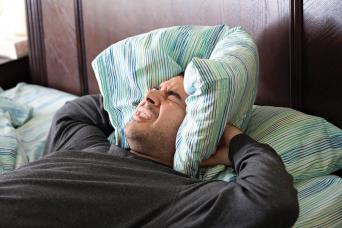
Having Trouble Sleeping? Try These Tips to Achieve a More Restful Night

Sleep is foundation of health, especially during these times of high stress and uncertainty. While we sleep, the body repairs itself, builds energy, produces hormones, creates memories are and removes toxic waste from the brain. Our subconscious also speaks to us through dreams.
On the flip side, lack of sleep may be sabotaging your health. In addition to being chronically fatigued, you are also prone to poor immune and cognitive function, anxiety, depression, hormonal imbalances, weight gain and increased sensitivity to pain. Poor sleep also increases your risk of hypertension, diabetes, cardiovascular disease and stroke. It is of utmost importance to cease burning the midnight oil and start prioritizing rest and sleep.
To improve your sleep and well-being:
- Aim for eight hours of sleep per night — more for children.
- Keep a regular schedule — in bed by 10 p.m. and up at 6 a.m., for example.
- Relax the body before bed with a warm Epsom salt bath or progressive muscle relaxation.
- Avoid alcohol, large meals and exercise several hours before bed.
- Enjoy a walk outside in the morning. Twenty to 30 minutes of sunlight at this time of day will help synchronize your body clock to a healthy sleep-wake cycle.
- Physically connect with the earth while barefoot. This grounding practice, also known as earthing, allows us to absorb electrons, stabilize our bioelectrical system, and tune into the healing potential of nature.
- No caffeine after 2 p.m.; its effect may continue into the evening. This includes coffee, tea, supplements containing caffeine, and yes, chocolate.
- Review any prescription medications to see if insomnia is a side effect. Speak with your physician before making changes to your medications.
- Embrace an evening ritual to calm the mind, i.e. journaling, light reading, meditation, tai chi, qi gong or restorative yoga.
- Minimize your exposure to artificial light in the evening; the blue light wavelength that’s emitted suppresses melatonin production in the brain. If you must look at a digital screen, wear blue light-blocking glasses with amber lenses. Choose warm incandescent light bulbs; they produce some of the lowest amounts of blue light.
- Turn your cell phone off, or put it on airplane mode to minimize sounds and exposure to electromagnetic frequencies. Then put the phone away.
- Turn off Wi-Fi at night; it may stimulate the brain.
- Reserve bed for sleep and intimacy only; not reading, television or movies. Create a sleep sanctuary.
- Keep the bedroom as dark as possible and cooled to about 65 degrees F. Cover all light from electronics and consider blackout shades.
- Herbal and nutritional sleep supplements should be reserved as an option after making changes to lifestyle and sleep hygiene. Always speak with your doctor before starting any new supplements.
If you snore or gasp for air while you sleep, speak with your physician about participating in a sleep study to investigate obstructive sleep apnea. There may be a simple solution.
After incorporating all of the above, if getting a good night’s sleep remains a challenge, there is a deeper root cause that warrants evaluation. The root cause may be biochemical or structural in origin. Biochemical causes of poor sleep include hidden infection; heavy metal, mold or environmental toxins; food sensitivity, nutritional deficiency or hormonal imbalance. Each requires unique testing and treatment.
Previous physical trauma may also impact your sleep, going as far back as childhood. The trauma would have created pain, and also disrupted the natural function of the nervous system. In these situations, osteopathic manipulation is often helpful; some patients even fall asleep on the treatment table.
Here’s wishing you deep, restorative sleep, in rhythm with the natural world.
